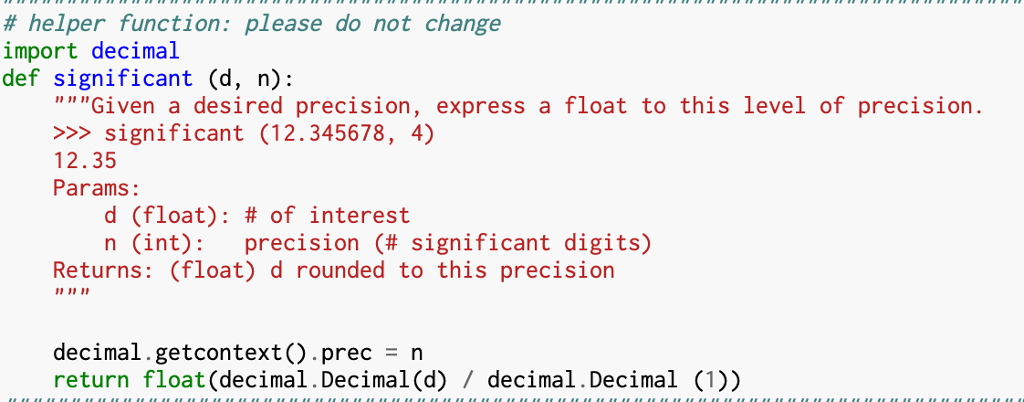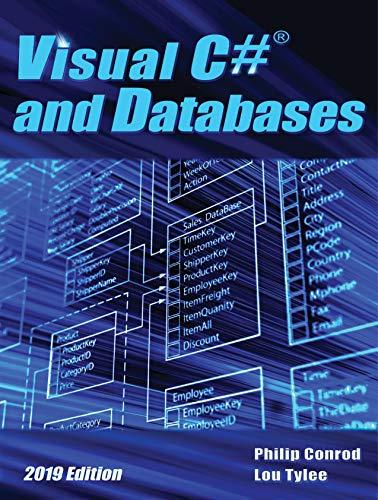Question
In python 3, write function computeE(n) to compute e to n1 significant digits, using Bernoullis formula e= limk(1 +1/k)^k and a while loop. In this
In python 3, write function
computeE(n) to compute e to n1 significant digits, using Bernoullis formula e= limk(1 +1/k)^k and a while loop. In this question, we will define the answer to be correct to n significant digits when two consecutive approximations agree to n significant digits. When two consecutive approximations agree to n significant digits, return the later approximation (which will be more accurate). For example, if (1 +1/4)^4 and (1 +1/5)^5 agree to ndigits, then you would return (1 +1/5)^5. I recommend using the helper function "sig(a,b) to solve this problem, which takes a float (a) and number of significant digits (b) to calculate a expressed to b. Start with k= 1, the smallest relevant k for Bernoullis formula.
Recall that, since e is an irrational number like 2, the decimal representation of e requires an infinite number of digits, so we can only approximate e. In the context of our recent discussion of logarithms, the natural log (ln x = loge (x)) is the log with base e. Just as computations simplify in computer science when you start counting at 0, computations become more elegant in mathematics and physics when you use the natural logarithm.
This is the helper function that is given: EX: input=1,
EX: input=1,
DO NOT ANSWER IF ALL THE OUTPUTS DONT MATCH PLEASE!!!!
input =1 output=2.25
input=2, output=2.44140625
input=3,output=2.6328787177279187
# helper function: please do not change import decimal def significant (d, n): """Given a desired precision, express a float to this level of precision. >>> significant (12.345678, 4) 12.35 Params: d (float): # of interest n (int): precision (# significant digits) Returns: (float) d rounded to this precision 191 decimal.getcontext).precn return float (decimal.Decimal(d) / decimal.Decimal (1)) # helper function: please do not change import decimal def significant (d, n): """Given a desired precision, express a float to this level of precision. >>> significant (12.345678, 4) 12.35 Params: d (float): # of interest n (int): precision (# significant digits) Returns: (float) d rounded to this precision 191 decimal.getcontext).precn return float (decimal.Decimal(d) / decimal.Decimal (1))Step by Step Solution
There are 3 Steps involved in it
Step: 1

Get Instant Access to Expert-Tailored Solutions
See step-by-step solutions with expert insights and AI powered tools for academic success
Step: 2

Step: 3

Ace Your Homework with AI
Get the answers you need in no time with our AI-driven, step-by-step assistance
Get Started


